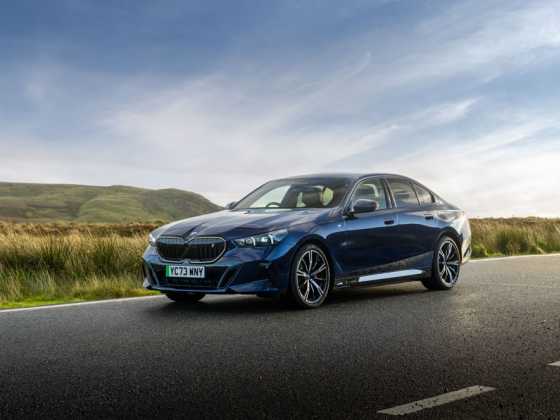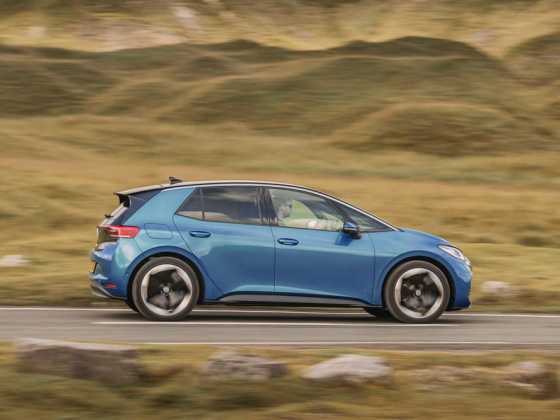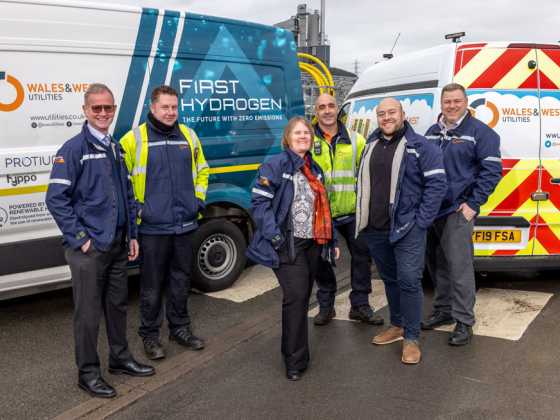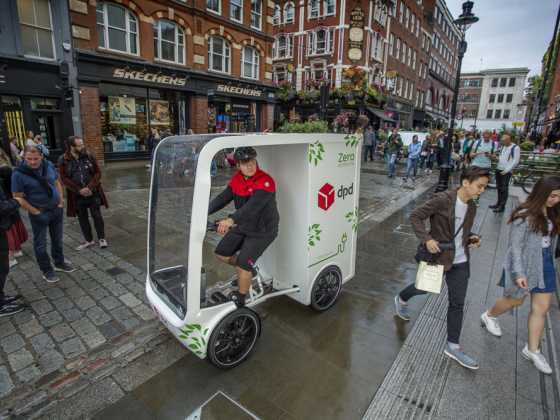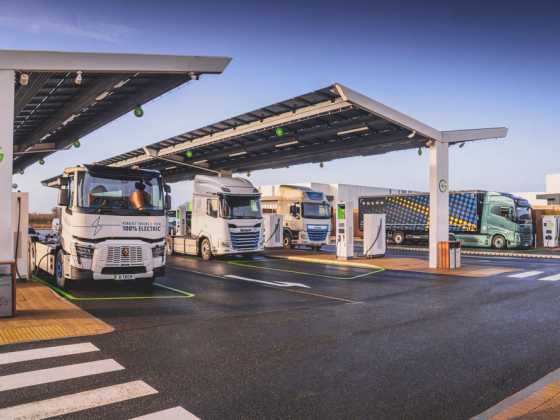The drive for van efficiency
The Van Best Practice programme launched last year advises van users how to cut costs, improve safety and reduce environmental impact. Programme Manager Larry Martindale explains how such efficiency can be achieved
 At a time when economic and environmental stories are hitting the headlines on a daily basis, it is fitting that a new programme has been launched to help reduce costs and greenhouse gas emissions.
At a time when economic and environmental stories are hitting the headlines on a daily basis, it is fitting that a new programme has been launched to help reduce costs and greenhouse gas emissions.
Launched in November 2009 by Transport Minister Paul Clark, the Van Best Practice programme, aims to help van owners and users improve operational efficiency through a series of best practice guides. It is fully funded by the Department for Transport and managed by climate change consultants AEA. The first guide issued by the programme is the Efficient Vans Guide, which provides practical advice on reviewing existing practices, reducing running costs and introducing improvement measures. The second guide, the Fuel Management Pack, supports this by outlining a step-by-step guide to managing fuel use.
A pressing need
Recent research carried out through the programme found that over half (52 per cent) of van drivers in the UK have not considered ways of reducing fuel costs in the last twelve months and just seven per cent plan journeys based on fuel efficiency. This is particularly significant when considering the huge savings that could be made if van users implemented changes to improve efficiency. In fact it is estimated that an overall improvement in fuel efficiency of just five per cent would save around £250 million per year, reducing carbon emissions by three quarters of a million tonnes.
From the research it is clear that the van sector needs to address efficiency as a priority – not solely because of the financial savings that can be made by individual businesses, but also due to the significant carbon emissions savings that can be achieved.
But what is efficient van use? This can be explained in seven easy steps: good organisation of van deployment, using the most appropriate vehicles, ensuring both mileage and costs are being managed, measuring performance, motivating drivers to improve their performance and ensuring improvement is continuous.
Achieving van efficiency
The question many will ask is how this can be achieved. Firstly, monitoring fuel consumption is essential. A recent study has shown that the majority (94 per cent) track their expenditure, however, the lack of data on miles travelled means that many are unable to calculate fuel efficiency or address the issues that might limit fuel efficiency. Being aware of the optimum and current fuel usage will help to identify where changes can be made. Once a target has then been set, there are lots of small changes that can be implemented.
By carrying out just one small change, organisations can make a huge difference overall. For example planning ahead before setting off is one of the best ways to help save fuel before stepping into the vehicle. Effective route planning, perhaps avoiding motorways for example, can help to minimise the distance travelled and therefore reduce fuel usage and the associated emissions. In addition, selecting less congested routes and using one journey to complete a series of jobs can help to use time more efficiently by reducing the amount of unnecessary trips.
The type of van used will also make a big difference. Vans with diesel engines are the most popular choice in the UK. However, users should consider their journey profiles and consider alternative fuels and technologies. For example, in an urban environment, traffic congestion and congestion charges will have an influence on fuel choice. Choosing a design of van that is suitable for the required purpose (i.e. a smaller van to carry a reduced load) can avoid the unnecessary use of larger vans which can be less efficient.
Aside from the model selected, maintenance of the vehicle, particularly if it is an older van, is crucial. Van users should carry out regular service checks and develop a servicing and maintenance policy in order to not only reduce expensive breakdown costs, but also ensure the engine is efficient.
Another cause of high fuel consumption is use of air conditioning, so drivers should be encouraged to turn this completely off when not needed. In addition, leaving a vehicle running during frequent stops can increase fuel consumption.
Engaging staff
Enrolling your employees onto a driving efficiency course can help to ensure all staff are aware of the importance and benefits of driving efficiently and how it can improve customer relations and save money. Encouraging drivers to adapt driving style can then also result in lower fuel consumption and fewer and less serious accidents. For example, drivers should be encouraged to avoid harsh acceleration and heavy braking, use higher gears, remove all unnecessary weight and reduce speed. In addition, tyre pressures needs to be checked on a regular basis to ensure they are correct for the vehicle and load.
It is also key to communicate the policies created. As well as saving money, lower fuel consumption will lead to decreased carbon dioxide outputs and contribute to emissions reduction targets that have been put in place to help tackle climate change. By explaining these strategies and letting customers know, organisations can improve their reputation and win more repeat business.
Vans are vital to the economy and essential to our efforts to encourage low carbon transportation. Ultimately then, through a focus on this sector the Van Best Practice programme can be influential in helping to reduce emissions as well as reducing costs. Through the programme we aim to raise awareness of the range of best practice guidance available to the van sector, helping businesses to improve safety and operational efficiency while informing them of the financial and environmental benefits of implementing this advice.
The programme has already received wide support from industry, including organisations such as the British Vehicle Rental and Leasing Association, the Road Haulage Association, the Freight Transport Association, vehicle leasing and rental suppliers Enterprise Rent-A-Car and Arval, as well as programmes such as Safe and Fuel Efficient Driving (SAFED) and Driving for Better Business. The enthusiasm of these organisations demonstrates that there is a real desire to make such advice available.
We’re therefore encouraging the van sector to make good use of the information available so that we can help to drive a real step-change.
Case study: premier watercoolers
Premier Watercoolers uses panel vans for its 14 mobile technicians. The technicians are home-based, and they service and maintain products at various dispersed customer locations. The business found that the technicians’ annual mileage was exceeding expectation and subsequently incurring unplanned costs. As a result, a number of actions were put in place that included reallocation of the technicians’ territories (many had evolved with the growth of the business and had not been reviewed previously), regular local stock replenishment to prevent unnecessary trips, and accounting for miles driven. The result of undertaking these simple actions was a 14 per cent reduction in van mileage.
Case study: British gas
British Gas supplies gas and electricity to UK residential and business customers, and provides central heating and gas appliance installation services. Its fleet comprises about 10,200 vans (mainly light vans and panel vans). British Gas has implemented a fuel monitoring programme, with engineers being provided with feedback and practical advice on improving their efficiency based on their fuel use. Fuel cards are used to collect the appropriate fuel and mileage data, which is then used to create league tables based on miles per gallon (MPG). Additional training is targeted at those engineers who continue to achieve a lower than expected MPG performance. British Gas has started a process of combining its vehicle incident and fuel use data to verify the relationship between excessive fuel use and poor road safety. This work is seen as a quick and easy way to identify poor driving behaviour.
For more information
For more information on the Van Best Practice programme, or to access the new guides, phone 0300 123 1133 or search online for Van Best Practice.

